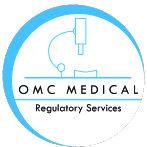Switzerland is a premier destination for medical device manufacturers relying on sophisticated micromanufacturing or advanced precision techniques. This appeal is evident in Switzerland’s choice of EMEA headquarters for industry leaders.
The country boasts one of the world’s highest proportions of GDP derived from the manufacturing sector, driven by traditional watchmaking, MEMS, and Medtech industries. These sectors have cultivated highly industrialized, digitized precision clusters ideal for crafting precise medical and orthotic devices.
The primary drivers compelling medical device manufacturers to opt for Switzerland include a technically adept workforce groomed by the country’s dual education system, ensuring proficiency in operating complex machinery.
Moreover, the attraction lies in Switzerland’s pragmatic, industry-tailored regulatory environment and an appealing tax system catering to foreign companies.
Medical Device Manufacturers – Pioneering Regulations, Efficiency, and Innovation
Many view Switzerland’s vocational training and close collaboration with research institutions and universities as facilitating quicker product validation and market entry.
While cost is often a reason for considering manufacturing or R&D elsewhere, numerous U.S. executives in Switzerland argue that the advantages surpass any increased expenses. Their skilled labour force proficiently handles advanced machinery, leading to fewer errors and ultimately lower costs.
Being near public authorities is advantageous, as these specialized hubs are usually geographically reachable. However, the ease of interaction with these authorities and an appealing tax system benefiting Switzerland as a European base further contributes to its attractiveness.
Testing, Scaling, and Collaboration
Switzerland offers an ideal setting for testing and expanding your business. Whether you’re experimenting with a new device or concept or engaged in the R&D phase, companies can swiftly progress from concept validation to commercialization due to an efficient bureaucracy and a tendency to avoid the usual bureaucratic obstacles in other nations.
Collaborating with Swiss corporations, startups, universities, and research institutions aids companies in extending and adjusting their businesses beyond U.S. borders, benefiting both sides.
Moreover, scaling becomes more manageable—obtaining permits and planning for new facilities is expedited and simplified.







